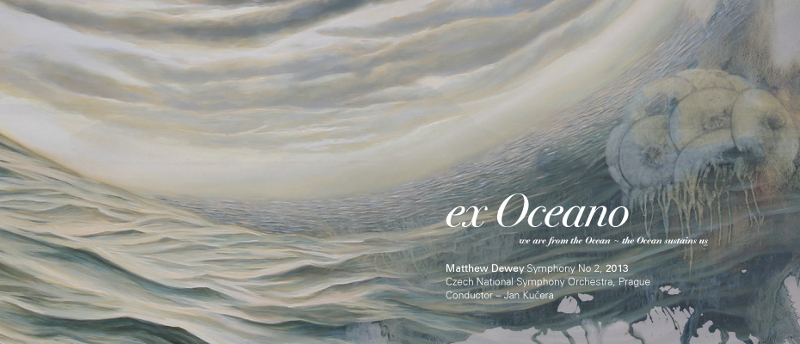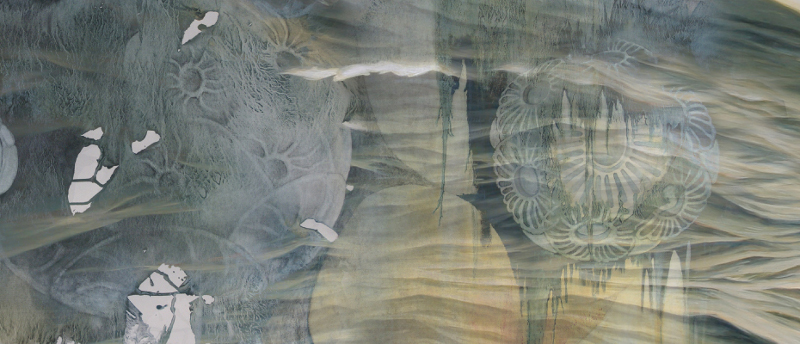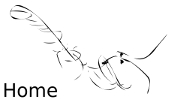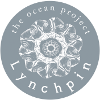Living Data
Evolving conversations 
University of Technology, Sydney Main Entrance Foyer, 3 Sept 2014 - 20 Nov 2014
In Ultimo Science Festival, Sydney3-12 Sept 2014
 Sue Anderson
Sue Anderson
ex Oceano is the collaborative commitment of people from different disciplines and understandings. Ocean scientists express their science to a composer: the composer expresses that science back to them in sound - through the making of a symphony.

Detail 1: CD brochure image.
Michaye Boulter, oil on canvas, 2013; Sue Anderson, works on paper, 2008.
Digital design: Jenny Manners, Sarah Owen Designs.
The Making of a Symphony: ex Oceano - we are from the Ocean - the Ocean sustains us.
A 2013-14 Lynchpin collaboration.
Lead author: Sue Anderson, Lynchpin Coordinator/artist; with Composer, Matthew Dewey; and PhD Candidates/Ocean Scientists, Robert Johnson and Nicholas Roden.
Asked what he sees when he looks out at the wide, blue horizon, the Oceanographer replies 'there is only one answer, life! The ocean sustains life. It connects all things. It is the thread that binds the web of life together.' How many of us see what the Oceanographer sees - and could it be important that we do?
Story:
Amongst the early life forms, phytoplankton [phyto = plant like, plankton = drifter] are where the process of photosynthesis began. These microscopic organisms have gone on to almost solely produce the atmosphere we breathe, allowed plants and animals to move onto land and gradually evolve into trees and dinosaurs - and, eventually, into we humans. Every second breath we take is thanks to these versatile, tiny plants. They are carbon sinks; they seed the clouds that protect us from the Sun's rays; they form the base of the food chain - we eat the fish and other animals that feed on them; we build our houses with calcium carbonate cement derived from the chalk skeletons of particular phytoplankton; and our cars and industries are powered by burning oil - the fossilized remains of their long dead ancestors.
Robert Johnson, Institute for Marine and Antarctic Studies,
University of Tasmania (IMAS/UTAS)

Detail 2: CD brochure image: Commitment - the term means the commitment
of the Earth now to paths of change that will be unavoidable and unstoppable in the future.
Michaye Boulter, oil on canvas, 2013; Sue Anderson, works on paper, 2008.
Digital design: Jenny Manners, Sarah Owen Designs.
The extraordinary phytoplankton story just described, sits at the heart of an interdisciplinary adventure in sound, in which Australian composer, Matthew Dewey, agreed to collaborate with PhD Candidates, Robert Johnson, IMAS/UTAS, and Nicholas Roden, Commonwealth Scientific and Industrial Research Organization's Centre for Marine and Atmospheric Research, Hobart, Tasmania, Australia. View profiles at the Lynchpin site: Our Projects/2013-2014. (http://www.lynchpin.org.au/our-projects/201314-2/)
In this exciting and challenging venture, the microorganisms of the ocean become the central players in a remarkable story. The world's ocean provides something extraordinary, on scales almost beyond the mind's grasp - an interaction between ocean, atmosphere and land that supports all life. This is a narrative on a grand scale, reminding us we are dependent on vast, sustaining planetary systems - worthy of expression in symphonic form in Dewey's work ex Oceano - we are from the Ocean - the Ocean sustains us.
But the ocean is changing. New understanding of ocean chemistry tells us that carbon dioxide arising from human activities is both heating the ocean and making it more acidic. ex Oceano expresses the complex, subtle, now poignant, role of the ocean, underpinning life itself; the powerful finale compels us to confront the concept of the Anthropocene - the epoch in earth's history marked by the impact of human activities on earth's ecosystems.
A promotional film about the symphony ex Oceano, filmed by Ocean scientist Nicholas Roden, was part of the Evolving Conversations exhibition. ex Oceano is now downloadable at iTunes, cdbaby and other digital distributors; a digital CD Booklet
Method:
Described within the following sections of Lynchpin web site: the Arts Respond and The Science behind the Making of a Symphony.
Achknowledgements:
Composer Matthew Dewey has crafted a sensitive and powerful work, reflecting the deep significance of the ocean to all life. One of the outcomes of the collaborative process has been that the scientists who generated the narrative that informed the composer, then experienced their knowledge differently. In 'hearing' it they stepped both inside and outside that science. Ross Gibson, Sydney College of the Arts, in his paper The Known World, posits that 'an artist makes a fulfilling conjunction and causes a turn in matter, time, space or events'. Matthew has generated such a conjunction; an immersive experience that embodies knowledge; a work with the potential to move and transform. We thank him for the generosity, creativity and expertise he has brought to this dialogue across disciplines. The process has been an adventure and a privilege.
It is important to acknowledge the goodwill and interest of young scientists who have taken part in Lynchpin projects. Their willingness to share their science and their patience in translating that science into narratives - from the necessarily precise to a faithful overview that could inform a creative response - is greatly appreciated. As part of the visual arts response to the project, sincere thanks to Tasmania artist Michaye Boulter, for generously allowing the use of her works, and to Canadian artist Evelyn Kolijn for conversation and inspiration. Thanks also to Sarah Owen and to Jenny Manners of Sarah Owen Designs for hours of patient support. Finally thanks to Lisa Roberts for encouraging conversations and for support over the years.
Publications:
Links available at the Lynchpin site to Australian Antarctic Magazine Issue 25: 2013
Symphony of science - the story of the symphony; Speeding towards an acid ocean (about Nick Roden's research);
Measuring phytoplankton from space (about Robert Johnson's research);
UTAS/Research to Reality publication: Contemporary Symphony Adds New Depth to Ocean Science
Hear Matthew Dewey, Nick Roden and Rob Johnson in conversation with Sarah Gillam, ABC Statewide, 13 January, 2014. ABC Symphony in Science
Impacts: What impacts do you hope your work will have? What feeling or message would you like people to take with them?
Music has the power not only to move us but also to create a hinge or pivot between the intellect and the world of the senses. The intent of the symphony, ex Oceano, is to immerse the listener in a different experience of ocean science. The hope is that the audience will come to understand the ocean as life-blood of the planet - something about which most of us are largely unaware and uninformed.
Lynchpin aims to promote and be faithful to the science behind its projects. The website provides references in forms that are both accessible and scholarly. On the Lynchpin menu, find ex Oceano/the Science and read the full Science Narrative written for composer Matthew Dewey by scientist, Robert Johnson. Also under ex Oceano find CD References.
Public engagement: How can people further engage with our work?
The Lynchpin website documents our programs, collaborations and conversations. Films and clips are shown at public gatherings. As stated above, the symphony, ex Oceano, will become available via iTunes from the composer's Catalogue of Works or his website.
Sue Anderson, Coordinator of Lynchpin - The Ocean Project, Australia
Affiliation: Lynchpin - the Ocean project.
URL: www.lynchpin.org.au
Contact details: Email: lynchpin@lynchpin.org.au











